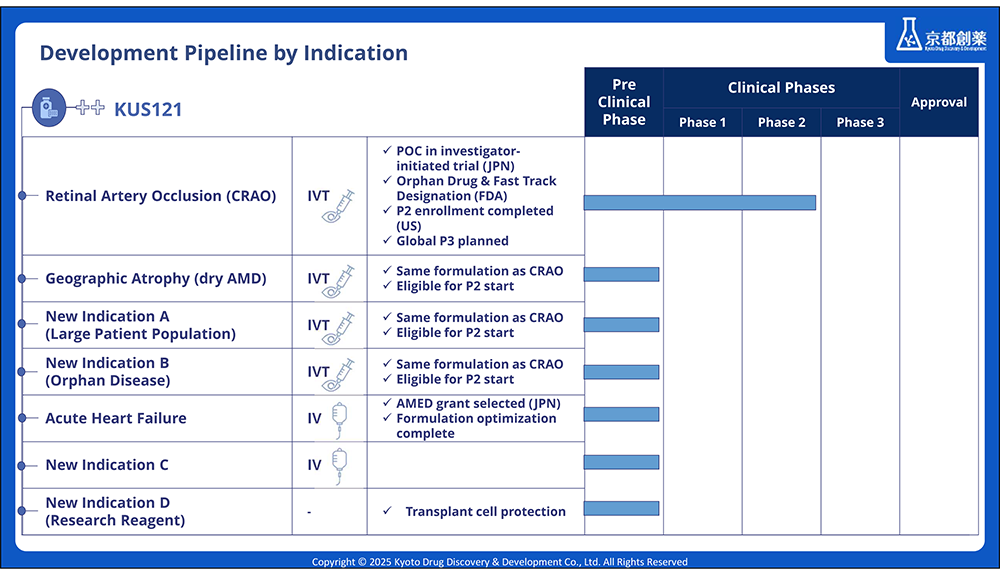We are dedicated to bringing smiles to patients around the world.

| Corporate name | Kyoto Drug Discovery & Development Co., Ltd. |
|---|---|
| Head Office | 8F , DP Square Sakaisuji Honmachi 1-6-9 , Awaji-Machi , Chuo-ku , Osaka , 541-0047 JAPAN |
| Labo | #302, Saito Bio Hills Center 7-7-18,Saitoasagi,Ibaraki-city,Osaka,567-0085 JAPAN |
| President & CEO | Kunihiro Musashi |
| Subsidiary | KDDD Inc. 3675 MARKET ST STE 200 PHILADELPHIA,PA 19104,U.S.A Kyoto Cell Pro Co., Ltd. |
| Major Business Activities | Research and Development of Drug, Diagnostic Drug, Human Cell Therapy and Gene therapy Products, Medical Equipment, Medical Instruments, Reagent and Medical Supplies |
| Establishment | May 15th. 2015 |
| Account Closing Month | April |
| Capital | 69.6 million yen(as of April 30, 2022) |
| Our Bank | Bank of Tokyo-Mitsubishi UFJ, Toji Branch Sumitomo Mitsui Banking Corporation, Kyoto Branch |
April 1st, 2023
Adopted for AMED Pre-Orphan Project
February 17th, 2022
Lab moves into Saito Bio Hills Center
July 15th, 2021
Headquarters moves into Chuo-ku, Osaka
August 1st, 2017
Labo was established in a building in Kyoto University
September 27th, 2016
Headquarters moves into a building in Kyoto University
March 30th, 2016
License Agreement with Kyoto University
May 15th, 2015
Established
| CEO | Kunihiro Musashi M.D. Ph.D. |
| CTO | Masaki Okamoto Ph.D. |
| Director, General Manager Research and Development Dept | Nobuaki Miyawaki Ph.D. |
| Auditor | Shinichi Kotani |










